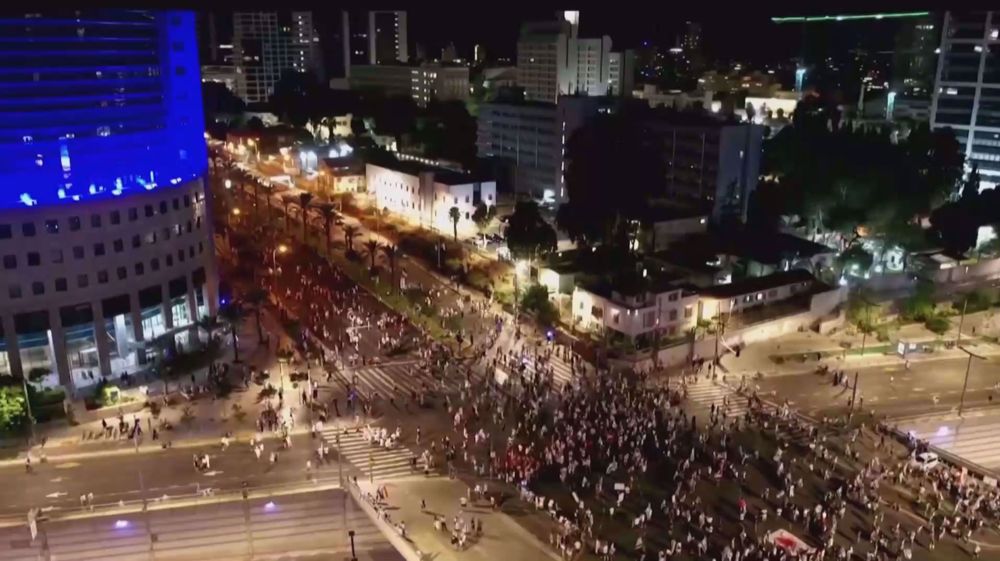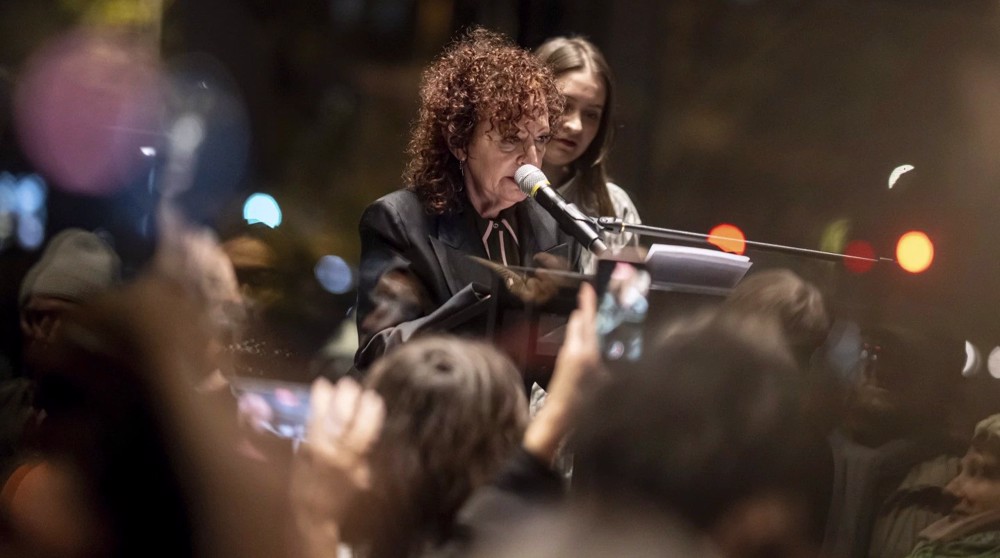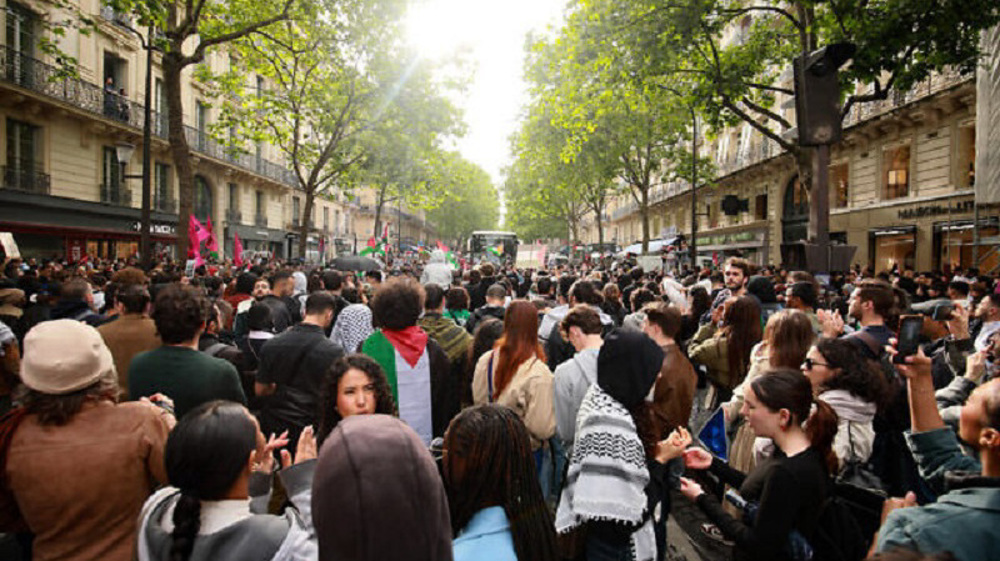Protesters rally in New York's Times Square against Netanyahu
Demonstrators staged rallies in Times Square in protest against the Israeli cabinet’s extremist policies outside prime minister Benjamin Netanyahu’s hotel, after he arrived in New York to meet with world leaders.
Early on Tuesday, hundreds of Israeli activists and members of the Jewish community in New York organized rallies as they gathered outside Netanyahu’s hotel in Manhattan’s Upper East Side, according to Israeli media reports.
Larger rallies also took place at noon in Times Square to protest Netanyahu’s visit to the US for the 78th session of the UN General Assembly and his meetings with President Joe Biden and other world leaders.
“The fight against Bibi is one of the biggest fights for democracy in the world,” said Lior Hadary, an Israeli protester in New York, referring to Netanyahu by his nickname.
“It’s similar to the fight against Donald Trump here…I believe this is one frontier in the same battle, the battle of democracy against populism, against dictatorship.”
Protest organizers in New York have scheduled events throughout the week and the rallies will continue until Saturday during Netanyahu’s meeting with Biden and the premier’s speech at the UN.
On Sunday, thousands took to the streets in several locations across the occupied Palestinian territories for the 37th consecutive week of anti-regime protests.
The protests have been a fixed weekly event since January when Netanyahu announced an overhaul scheme, which seeks to rob the regime’s Supreme Court of the ability to invalidate the decisions made by the politicians.
Proponents of the overhaul say it helps redistribute the balance of power between the politicians and the judiciary.
Its opponents, however, accuse Netanyahu of trying his hand at a power grab. They say the premier, who is on trial in three corruption cases for receiving bribes, fraud, and breach of trust, is also attempting to use the scheme to quash possible judgments against him.
Netanyahu’s far-right cabinet has already passed one of the scheme’s bills through the Knesset, which stripped the court of its power to strike down the cabinet’s decisions or appointments on the basis of being “unreasonable.”
The important of Venezuela for Iran
Iran beats traditional rival Russia in freestyle and Greco-Roman wrestling friendly
Rape trials trigger protests against French ‘sexist and misogynistic’ culture
US photographer opens Berlin exhibition with anti-Israel speech
VIDEO | Press TV's News Headlines
VIDEO | US 'non-profit killer’ bill targets pro-Palestinian groups
Explainer: How Yemeni military chased away US aircraft carrier from Red Sea?
French march for women of Palestine











 This makes it easy to access the Press TV website
This makes it easy to access the Press TV website